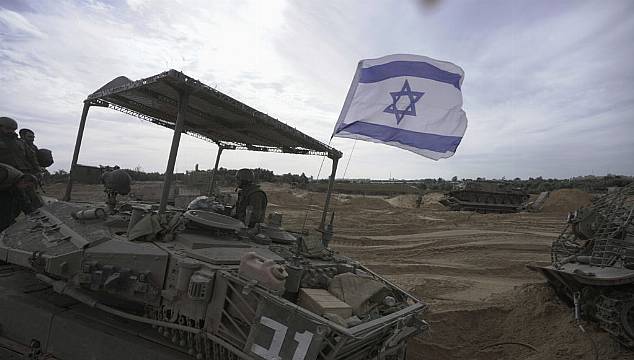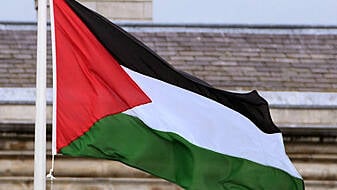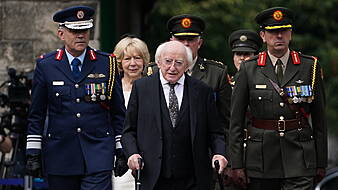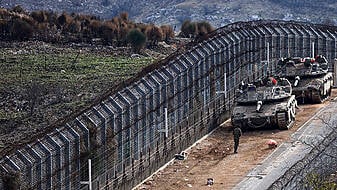David Cameron met Israeli prime minister Benjamin Netanyahu and president Isaac Herzog during a visit to Israel, amid the announcement of a truce in the war with Hamas.
The former UK prime minister expressed hope that it could be an “opportunity to crucially get hostages out and get aid into Gaza”.
It was confirmed that the ceasefire will begin on Friday morning from 7am local time, with aid “going in as soon as possible”, according to Qatari officials.
The first set of civilians held captive by Hamas are expected to be freed at about 4pm on Friday local time, including 13 women and children.
The agreement for a four-day ceasefire in Gaza appeared to have hit a last-minute snag, with Mr Cameron telling Mr Netanyahu that he wanted all parties to the agreement to “make it happen”.
There are hopes that the lull in the fighting will clear the way for humanitarian aid to enter Gaza to ease the suffering of citizens who have been bombarded and besieged by Israel as it takes on Hamas in response to the October 7th atrocities.
Mr Cameron, who earlier visited Kibbutz Be’eri, scene of some of the worst violence during the Hamas assault, said: “There is never any excuse for this sort of hostage-taking.
“All the hostages should be released, but I hope that everyone who is responsible and behind this agreement can make it happen, to bring relief to those families, including, of course, there are British nationals who have been taken hostage.”
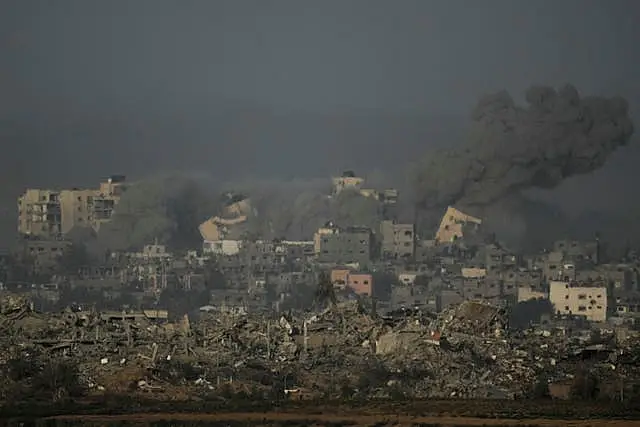
Mr Netanyahu promised to “continue with the goals of the war and we will eradicate Hamas”.
“There is no hope for peace between Israel and the Palestinians and between Israel and the Arab countries if we do not eradicate this murderous movement, which threatens the future of all of us,” he told the Foreign Secretary.
Meeting Mr Herzog, the ex-prime minister said it was “very good” to be back in Israel.
“There’s a huge amount of trauma in Israel because of the taking of 244 hostages. I’m not sure anyone can fully understand and share that trauma, but I remember the worst days of being prime minister was when British hostages were taken in Syria, and so many of them lost their lives in the most gruesome, terrible fashion.
“I remember the effect that had on me as prime minister and thinking about that and so perhaps know a tiny bit of what your nation is going through.”
This morning, together with @elicoh1, I visited Kibbutz Be’eri, one of the communities affected by the appalling terror attack Israel suffered on 7 October.
I wanted to come here to see it for myself; I have heard and seen things I will never forget.
Today is also a day where… pic.twitter.com/2dU4gbeaIE— David Cameron (@David_Cameron) November 23, 2023
Mr Cameron’s visit comes a day after he met counterparts from Arab and Islamic countries – including the Palestinian Authority – at Lancaster House in London to discuss the Middle East crisis.
Foreign ministers from Saudi Arabia, Jordan, Egypt, Turkey, Indonesia and Nigeria, as well as the secretary general of the League of Arab States, and the ambassador of Qatar, attended the event.
Mr Cameron said the group discussed how to use the planned pause in the Israel-Hamas fighting to consider “how we can build a peaceful future which provides security for Israel but also peace and stability for the Palestinian people”.
